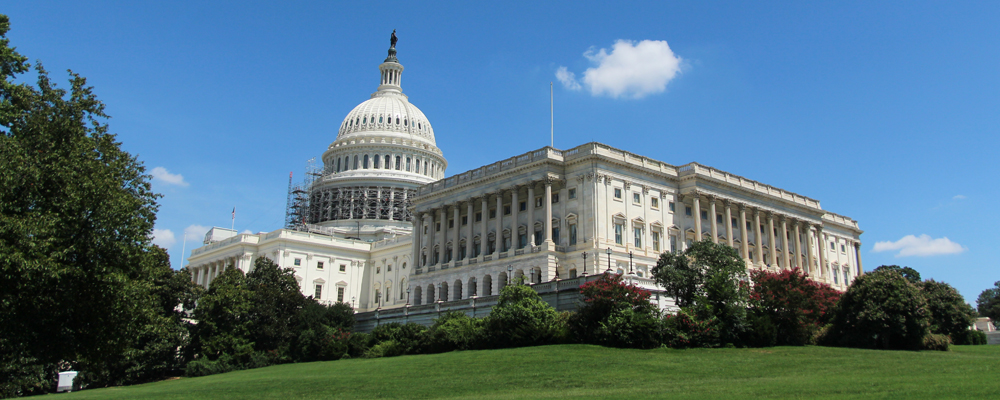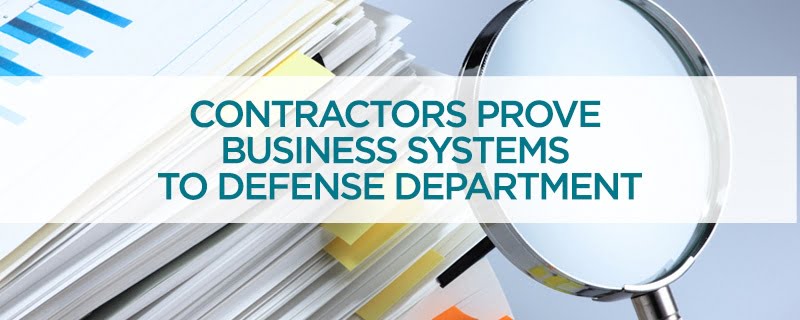Neena Shukla has extensive experience leading and managing assurance and consulting engagements, with a deep background advising on SEC compliance, mergers and acquisitions due diligence, revenue recognition, stock compensation, employee benefit plan audits, cybersecurity, fraud and forensic accounting. Her background includes working with varied types of businesses with a focus on government contractors, including those in the technology industry. In addition, she has clients in construction, real estate, not-for-profit, healthcare and manufacturing sectors.
Several special certifications add to Neena’s knowledge and allow her to provide clients with deep insight to help them perform at their peak. She has earned the Government Contract Accounting Certificate demonstrating her understanding of the unique accounting-related rules, problems, practices and demands of government contractors. In addition to her CPA license, she holds credentials as a Certified Fraud Examiner (CFE), Chartered Global Management Accountant (CGMA) and Forensic Certified Public Accountant (FCPA). In addition, she is a peer reviewer of employee benefit plan engagements for the AICPA’s Peer Review Program. Evidence of her commitment to the industry has been noticed by her colleagues as she has been named a Super CPA by Virginia Business magazine for her work in the Assurance category.
Neena embraces new technology, and is a committed volunteer in the community with various organizations focused on empowering young individuals to pursue careers in STEAM, science, technology, engineering, art and math fields.
PROFESSIONAL ASSOCIATIONS:
- American Institute of Certified Public Accountants
- Association of Certified Fraud Examiners
- AFCEA
- Virginia Society of Certified Public Accountants (VSCPA), Peer Review RAB Committee Member
- VSCPA Education Foundation
- National Contract Management Association
- National Defense Industrial Association
- Women in Defense
- Women In Technology Education Foundation
- ISACA (formerly the Information Systems Audit and Control Association)
EDUCATION:
- Bachelor of Arts with Honors in Accounting from the University of Wales, United Kingdom
ARTICLES:
Understanding the DCAA Audit: A Comprehensive Guide for Government Contractors

As a government contractor, it is crucial to understand the intricacies of DCAA’s processes, as it can be beneficial to your survival and success in the federal market. In this extensive guide, we aim to demystify the DCAA, its role, and how you, as a contractor, can turn the DCAA audit process into a constructive partnership rather than a foreboding encounter.
Understanding Cost Estimating Systems: A Guide for Government Contractors

Understand the cost estimating system for government contractors. It is not merely a tool for internal budget predictions; it’s part of the regulatory compliance landscape, ensuring proposals meet the tight guidelines set out by government agencies.
SBA 8(a) Certification Guide for Government Contractors

We break down the path to obtaining SBA 8(a) certification for Government Contractors, the eligibility criteria you need to meet, and weigh the pros and cons to help you determine if it’s the right decision for your business.
Empowering Employees: The Next Frontier in Cybersecurity for Government Contractor Employee Benefit Plans

Read about the future of Cybersecurity for Government Contractor Employee Benefit Plans.
Navigating the CECL Landscape: A Guide for Non-Financial Entities – Part 1

Learn about, as a non-financial entity, how to navigate the Current Expected Credit Loss (CECL) model through our two part blog series.
Contracting Success: Year-End Financial Flourish for Savvy Government Contractors

Government contractors, learn about year-end financials and setting yourself up for success in the New Year.
Navigating the Compliance Maze: A Government Contractor’s Guide to 401(k) Nondiscrimination Testing

As a government contractor, it is vital to possess a comprehensive understanding of the regulations governing 401(k) plans and the intricacies of nondiscrimination testing. While these retirement savings plans are commonly offered by employers, it is imperative to meet specific requirements to maintain their tax-deferred status.
Navigating the New Seas of Cybersecurity: A Contractor’s Guide to the VA’s Latest Rules

In the ever-changing landscape of cybersecurity regulations, government contractors must be prepared to adapt and comply with the latest requirements to safeguard sensitive information.
Navigating Government Shutdowns in 2023: Essential Insights for Contractors

In this article, we will delve into the intricacies of government shutdowns, their direct implications on contractors, and equip you with practical strategies to effectively prepare for any future shutdown scenarios that might arise in 2023.
Don’t Get Hooked: A Guide to Phishing for Government Contractors

As a government contractor, you understand the importance of safeguarding sensitive information. But with the rise of email and online communication, cybercriminals are using phishing scams to trick unsuspecting employees into revealing confidential data.
Achieving Competitive Advantage Through ESG Practices in Government Contracting

If you’re a small business owner, you may have come across the term ESG and wondered about its meaning. ESG stands for Environmental, Social, and Corporate Governance, which are important factors that investors use to evaluate companies of all scales.
Why the TikTok Ban on Contractor Devices is a Big Deal

The US has issued an executive order banning all federal contractors and employees from downloading or using TikTok on any device that is owned by the government, citing security concerns. This ban has sparked much debate about the future of the platform and what this means for users.
Understanding the Service Contract Act (SCA) for Government Contractors

As a government contractor, understanding your obligations under the Service Contract Act (SCA) is essential. In this blog post, we will provide you with an overview of the SCA, including its requirements and challenges when implementing the standard. We will also discuss how compliance can be achieved and the risks associated with noncompliance.
Recovering Your Indirect Costs Depends on Your Budgets

By Neena Shukla, CPA, CFE, CGMA, FCPA, CTP | If you have a responsible estimating system, you would typically anticipate recovering all of your direct costs. However, to ensure recovery of your Company’s indirect costs, requires a good budgeting process and established internal controls.
Analyzing Indirect Rate Changes – Base or Expense?

Budget variances, the difference between planned billing rates and planned forward pricing rates and actual performance, favorable and unfavorable, will happen. When they do, it is critical to profitability to understand what is causing the variance so it can be considered in your budgeting process going forward or operationally corrected.
Is My Research and Development Expense Allowable under FAR?

In this blog post, we’ll take a look at what types of research and development expenses can be considered allowable under the FAR, as well as some tips for ensuring that your expenses meet the criteria.
Analyzing Indirect Rate Changes – Base or Expense?

Budget variances will happen. When they do, it is critical to profitability to understand what is causing the variance so that it can be considered in your budgeting process going forward or operationally corrected.
Need Help with Your Accounting Policies and Procedures?

One of the most important aspects of an adequate accounting system lies in the supporting policies and procedures. But where do you start when developing these policies and procedures?
Simplified Accounting for Commonly-Controlled Leases

FASB’s amendments to ASC 842 offer simpler guidance for common control lease arrangements and provide a practical expedient for lessees to account for leases in common arrangements without considering legal enforceability.
What Government Contractors Need to Know about PTET

Understanding the rules and laws governing PTETs and various state rules, as well as GAAP guidance, can help make sure government contractors remain compliant and efficient.
Accounting System Compliance – Foundation for Success

An accounting system for government contractors is composed of a general ledger, unallowable costs, job costing, labor collection, indirect cost allocation, and billing. An accounting system does not equate to accounting software; it is the process, including written policies and procedures.
Strategic Costing and Pricing Fundamentals for Government Contractors

Government contractors have to understand the fundamentals of strategic costing and strategic pricing in order to make correct decisions that determine their overall profitability on a job.
Government Contracting Basics: Five Types of Government Contracts Including Risks, Pros and Cons

Learn more about these five types of government contracts presented in detail – including what they entail, their risks, and the pros and cons of each.
Accounting System Compliance Risk – Before and After Contract Award

Government contractors should perform an internal assessment of their compliance before an audit is performed and participate in the audit process to ensure a favorable result.
Idle or Not Idle? That is the Question

The pandemic and the resulting changes in employee work routines and locations have created a potential cost-allowability issue that many government contractors have not previously encountered – potential idle facilities and/or idle capacity.
So, You Think You Know Unallowable Costs?

Learn about unallowable costs and what determines a costs’ allowablility. We also provide a listing of FAR and DFARS clauses that are considered to contain expressly unallowable costs subject to penalties.
Implementing the Lease Standard: Things to Remember

The new lease standard has brought about a lot of changes. In this blog post, we will discuss some of the most important things to remember when implementing ASC 842. We’ll also provide a checklist of tasks that should be completed in order to ensure compliance with the new lease standard.
Surveillance Survival – Responding to a Government Audit

Every few years, we reach out relative to the importance of a government contractors’ response to audits performed by the Defense Contract Audit Agency (DCAA), the Defense Contract Management Agency (DCMA), the Department of Labor (DOL) or, for that matter, any other government audit function.
Strategic Material Handling and Major Subcontracting Indirect Rates

Government regulation requires costs to be classified as either a direct cost or an indirect cost. As we know, indirect costs, in the aggregate, represent the largest class of expense incurred on government contracts. Direct costs, by definition, are identifiable with a specific “final cost objective” while indirect costs are associated with common or joint cost objectives.
Labor Recording! Are you ready for an audit?

Labor recording is the basis for the valuing and allocating the efforts of you and your employees and a critical process for government contractors who depend on it for their product and services costing (read billing/cash flow) and pricing.
Provisional Billing Rates vs. Forward Pricing Rates

While a contractor’s forward pricing rates may sometimes get confused with their provisional billing rates, by the contractor and even the government, they are completely different rates developed for completely different purposes.
What You Need to Know about Government Contracting Laws: FAR and Beyond

FAR (Federal Acquisition Regulations) is one of the most important laws to know for any company looking to work with the federal government. In this blog post, we’ll cover some key points so you can get started on understanding your responsibilities as a contractor!
What Is a System? Getting Started Toward Business System Compliance!

It is important for government contractors in developing their business systems and offering them up to the government as representative of their compliance with the published requirements to understand what a “system” is in the context of government compliance.
What Do Government Contractors Need to Know about DCAA?

DCAA compliance is an essential component of government contract administration. The key for government contractors is to know what rules and regulations they are subject to, implement the necessary processes to ensure compliance, and maintain that compliance.
Top Programs for Winning Government Contracts: A Smaller Contractor’s Resource

The Federal government uses special programs to help small businesses win at least 23 percent of all federal contracting dollars each year. Small businesses should take advantage of these programs to give them a competitive edge in the government contracting arena.
Proven Tactics Tech Companies Can Use to Win Government Contracts

Should you accept government work if you are a technology firm? Yes, if you want to increase your revenue. Here are some tried-and-true tactics for winning government contracts that will help tech businesses succeed in the extremely competitive business world.
Service Centers – A Multi-Purpose Management and Allocation Tool

Learn about service centers and cost allocation methods, specifically direct allocation and step allocation, that can help you understand the “true” cost of your products and services so you can price them for a profitable return.
Tips for Effective Remote Team Management for Government Contractors

Managing a remote team as a government contractor can be difficult if not handled correctly; however, it is possible to make a successful transition from onsite to remote staff. Here are ten tips to get you started.
Policies and Procedures – Store Bought Pitfalls for Government Contractors

Many government contractors opt to use policies and procedures that they either find online or obtain from other sources. Herein lies the problem. How do you know that what is a compliant practice for one organization will result in a compliant practice for your organization?
Civil Cyber-Fraud Initiative Will Crack Down on Government Contractors

The DOJ’s Civil Cyber-Fraud Initiative will target government contractors and grant recipients’ security procedures in order to limit future cybersecurity problems. In this article, we review what you should know about the new civil cyber-fraud initiative, what might lead to infractions, and how to avoid hefty fines.
Are You Ready for a Cost-Type Future?

With the potential redirected push for cost-type contracting over fixed-price contracting, there are new compliance issues for government contractors.
Accounting System Adequacy — Compliance 101 — Down to Basics!

The SF1408, Preaward Survey of Prospective Contractor (Accounting System) details some sixteen specific requirements a potential contractor must meet for their accounting system to be considered adequate. To make compliance more understandable and attainable, we’ve compiled the following five capabilities contractors should implement and document in written policies and procedures.
Impact of New Lease Accounting Standards for Government Contractors

Do you have a lease? If so, it is important to be aware of the new Lease Accounting Standards for Government Contractors. Lease accounting standards are changing and government contractors need to know how this will affect them.
How the Government Buys Goods and Services: What Government Contractors Need to Know

The federal government is the largest single customer in the world. Continuing with our Basics of Government Contracting Series, in this blog post we discuss how the federal government buys goods and services and what you need to know as a government contractor.
Strategies for Government Contractors to Retain Employees in a Post-Covid Environment

Retaining talent in a post-Covid environment can be challenging, but it is important to keep your employees engaged and productive. Here are five tips on how you can successfully retain your talented people when economic uncertainty looms overhead.
Government Contracting Basics: Pros and Cons of Doing Business with the Government

If you’re thinking about pursuing government contracts, it’s important that you weigh the pros and cons carefully to make an informed decision.
Keep Your Labor Rate Compliant and Competitive!

The standard calculation of a proposed hourly rate for an exempt salary employee encompasses dividing the individual’s salary by the standard 2,080 work hours per year. However, there is a way you can make your hourly rate more competitive and FAR compliant at the same time.
Federal Contractors on the Hook for Cybersecurity Readiness

In another demonstration of the federal government’s commitment to cybersecurity, the DOJ released details of its Civil Cyber-Fraud Initiative. Here’s how contractors can comply.
Are You Ready for a Fixed-Price Future?

On January 15, 2021, the Office of Management and Budget issued a memorandum (M-21-11) to the heads of all executive departments and agencies entitled “Increasing Attention on Federal Contract Type Decisions”.
Is Your Pricing Compliant with FAR?

The Federal Acquisition Regulations and the Cost Accounting Standards require consistency in estimating, accumulating and reporting costs. In other words, the way you price your contracts must be consistent with the way you account for and report them. There are two things you can do to help ensure compliance.
Accounting Elective for Rent Concessions During COVID-19

One of the effects of cash flow shortages from COVID-19 has been an increase in rent deferments or abatements. It’s one thing to alter the language of a contract, but the question becomes how to treat rent concessions in the financial statements, and which set of guidelines to follow.
Kickback Understanding and Risk Prevention

The term ‘kickback’ is defined by Public Law 99-634 as any money, fee, commission, credit, gift, gratuity, thing of value, or compensation of any kind which is provided directly or indirectly, to any prime contractor…
DCAA Audit Protocol during the COVID-19 Pandemic

As the COVID-19 pandemic continues with no real end in sight the performance of traditional on-site audits by DCAA becomes a significant safety issue.
GSA Cancellation Emphasizes the Importance of a Compliant Cost Accounting System

The recent cancellation of the General Services Administration (GSA) $15Billion Alliant 2 Small Business (A2SB) contract highlights the need for small government contractors to have a properly evaluated cost accounting system.
Emphasis on Cost Estimating – Processes and Compliance

The government is increasingly placing emphasis on compliance with the False Claims Act (FCA) and the Truth in Negotiations Act (TINA) currently known as the Truthful Cost or Pricing Act.
Communication, Identification and Documentation for Government Contractors

As a government contractor, you are tasked with continuing contract performance under the risks of uncertain and constantly changing circumstances.
To Allocate or Not to Allocate, Is Not the Question!

Good allocation practices can provide a better understanding of the “true” cost of your products and services, allowing you to become more competitive, better utilize your available assets and facilitate your management decision making process.
Government Contractor Revenue Recognition Disclosures

In 2014, the Financial Accounting Standards Board (FASB) issued new guidance, ASU 2014-09, Revenue from Contracts with Customers.
Incentive Bonuses – Be Sure They Are Considered Allowable!

Most companies have found that offering incentive bonuses or awards is a good way to obtain and retain good employees.
Firm-Fixed-Price Contracts vs. Cost-Plus-Fixed-Fee Contracts

Many government contractors start with firm-fixed-price contracts and do well, but at some point they are lured by the possibility of being awarded a cost-type fixed-fee contract that is too tempting to pass up.
CMMC Frequently Asked Questions

The necessity to protect data is one not limited to private sector businesses that store, manage and process personally identifiable information (PII). In fact, government agencies such as the Department of Defense (DoD) also need to evaluate, review and enhance cybersecurity measures both internally and with contractors.
How DoD Contractors Can Prepare for CMMC Implementation in 2020

Cybercrime costs the U.S. economy between $57 billion and $109 billion every year. Although there have been guidelines for meeting cybersecurity benchmarks in the past, all DoD contractors are now subject to Cybersecurity Maturity Model Certification (CMMC).
Audit Protocol When Working with DCAA

With increased Pentagon spending and the Defense Contract Audit Agency’s (DCAA) reduction and outsourcing of their Incurred Cost Submission audit backlog, government contractors should anticipate a significant increase in audit activity.
Excessive Profits as a Government Contractor: Windfall or Downfall?

Government spending has increased, leaving Congress no choice but to review the Pentagon’s enforcement of the law related to the incomplete and inaccurate cost and pricing data used to establish contract pricing. First implemented in 1962 to level the playing field during contract price negotiation, the law has left many government contractors raking in the profits today. But what may seem like a windfall could lead to a downfall.
Government Contractors-Protect Against Unallowable Subcontractor Costs

The Defense Contract Audit Agency recently questioned the allowance of subcontractor costs, not based on their reasonableness, but on the contractor’s lack of supporting documentation as defined in the cost principle. Government contractors can protect themselves and recover the costs they are owed, but there are steps to follow and documents to submit.
We Are All Ethical, Until We Are Unethical

For government contractors, it is important to recognize your ethics and business conduct program must be tailored to your company’s specific risk profile. This is a dynamic compliance process and has to be monitored and revised accordingly to keep it relevant and effective. Does your company’s business conduct and ethics program meet the necessary requirements?
Your Incurred Cost Proposal is Important

Government contractors’ incurred cost proposals include all costs incurred during the fiscal year on both commercial and government contracts. For those with fiscal years the same as calendar years and work was performed on cost reimbursable and/or time and material contracts that include the Allowable Cost and Payment clause at FAR 52.216-7, it’s time to begin preparing and submitting your incurred cost proposal/submission.
Contractors Prove Their Business Systems to Defense Department

Contractors or subcontractors that have never had an audit performed by DCAA, or have made changes to their accounting and estimating systems and processes, should be proactive and have self-assessment/mock-reviews of each performed in advance of a DCAA audit. Are you ready?
Stop Work Orders – What it Means for Government Contractors

Government contractors must stop work immediately when they receive a stop work order (SWO) from a contracting officer. What are the next steps? There are several processes to follow, including one to aid in the recovery of additional costs incurred as a result of the SWO.
Allocating General and Administrative Costs to Your Advantage

The government cannot dictate the number of indirect rates you have or how you apply them but they can cite you for non-compliance in the allocation of your indirect costs. Learn how best to allocate your costs based on the type of expense.
Developing an Indirect Cost Allocation Plan

Was your rate structure used to allocate indirect costs to your products or services established to satisfy your accounting software? Was it dictated by your customer? Did you set it up because you thought that is what was needed to win contracts? Did you get it from a book or seminar, or even Google? If you answered “yes” to any of these questions, you need to read further.
Four Ways Government Contractors Can Improve Their Accounting Systems

As government contractors grow to gain new clients and hire more staff to perform the obligations, the accounting system must grow too. Small and emerging government contractors can properly account for costs incurred on government cost-type contracts without overcomplicating the process.
Contract Delays Can Rob Profits

Each time the government changes or delays an existing contract, the contractor can submit a Request for Equitable Adjustment (REA) to receive compensation for costs incurred due to the change. Sometimes contract completion is delayed simply because of planned contract performance as the result of the government’s improper actions or lack thereof prior to, and even during contract performance.
Identifying Unallowable Costs – Lodging and Subsistence Costs

The Defense Contract Audit Agency (DCAA) is noticing many government contractors are inaccurately recording lodging and subsistence travel costs and it’s become an area of “low hanging fruit” for DCAA auditors. What are the unallowable expenses under DCAA guidelines?
Understanding Your Indirect Rates

Whether you are new to government contracting and are just setting up your accounting system or are more established and not sure costs are being […]
Are Your Holiday Party Expenses Allowable?

The holidays are here. Is your company getting ready to have its annual holiday party? If so, you may be asking, “Are the costs of the company holiday party allowable or unallowable?” The answer is maybe.
How Government Contractors Should Prepare for a Government Shutdown

This is a follow-up to previous discussions about a potential Federal government shutdown that was avoided through a continuing resolution restricting expenditures. The threat hinges […]
Important Change to Technical Interchange Requirements

We reported in December 2016 that the Department of Defense had issued a final DFARS rule requiring major contractors to engage in technical interchanges with […]
Due Diligence Should Be More Than Numbers

Whether it is to gain access to new technologies or increase resources and market presence, more companies, large and small are considering a merger or acquisition.
Tips for Truthful Cost or Pricing Data Act Compliance

For government contractors, compliance with the Truthful Cost or Pricing Data Act (TINA) is a critical part of staying on the right side of federal contracting and acquisition requirements. But what is the law, and what does it do? Here’s a brief primer.
State and Local Tax Compliance for Government Contractors

The federal government is, by law, exempt from paying state and local taxes. However, this exemption does not apply to organizations with federal or state government contracts, […]
Navigating Labor Floor Checks and Labor Interviews

The costs of labor, especially in service-oriented companies is the most sensitive area of incurred cost that the Defense Contract Audit Agency (DCAA) is required […]
Identifying Unallowable Costs – Executive Compensation

A large number of small companies and even some considered large have historically not concerned themselves with the allowability of their executive’s compensation. With annual allowability […]
How to Handle a DCAA Audit

If you have proposed on or been awarded a contract with the Federal government, and especially with the Department of Defense, you probably have been the recipient of a visit from the Defense Contract Audit Agency (DCAA). While these visits to perform a multitude of audits and evaluations are not the end of the world, they should be taken and reacted to seriously.
Subcontracting Primer – Team Work and Due Diligence Pays Off

FAR 44.101 defines a subcontractor as “Any supplier, distributor, vendor, or firm that furnishes supplies or services to, or for, a prime contractor or another […]
Does Your Gov Con Have a Policies and Procedures Road Map?

To emphasize the need for compliant policies and procedures we need to refer to a quote from the great Yogi Berra, “If you don’t know […]
Plan’s Interest in a Master Trust – Disclosure Requirements

ASU Issued: The Financial Accounting Standards Board (FASB) issued ASU 2017-06, Plan Accounting: Defined Benefit Pension Plans (Topic 960), Defined Contribution Pension Plans (Topic 962), […]
Identifying Unallowable Costs – Marketing vs. Direct Selling Expenses

Many organizations have the misguided belief that all Marketing/Sales Department expenses are unallowable and exclude them entirely from their allocation of indirect costs. This is not […]
Insider Threat Program Implementation

Contractors that have a facility clearance through the Department of Defense’s Defense Security Service (DSS) must have a written plan in place for the implementation of […]
Goodwill Impairment – Simplified

On January 26, 2017, the Financial Accounting Standards Board (“FASB”) issued Accounting Standards Update 2017- 04, Intangibles – Goodwill and Other (Topic 350): Simplifying the […]
Federal Acquisition Regulation on the Best Seller List?
The U.S. General Services Administration (GSA) has released the first ever iBook version of the Federal Acquisition Regulation (FAR). While the FAR may never be […]
Costs Related to Extraordinary Reviews of Unsettled Overhead Costs

On September 28, 2016, DCAA removed Chapter Seven from the Contract Audit Manual (CAM) and released a new seventy-five chapter document entitled “Selected Areas of […]
How to Qualify as a Small Business Government Contractor

So you are considering or have decided that you want to do business with the United States Government. Why not when the government spends over […]
Independent Research and Development Cost Allowability

The Department of Defense has issued a final DFARS rule requiring contractors to engage in technical interchanges with the DoD before such costs are generated. […]
Contract Termination for Convenience – A Coming Reality?

Today’s political and budgetary environment will most likely lead to changes in procurement priorities and reduced government spending levels. These realities, reflected in contract terminations […]
Why Contract Briefs are Important

Preparation of Contract Briefs are often a forgotten and generally disregarded tool of contract management that can prove very useful in improving cash flow through […]
On the Road to Increasing the Recovery of Travel Expenses

Travel expenses, while they may not be one of your largest costs, depending on your contractual requirements, could easily be one of the most scrutinized […]
The New DOL Fiduciary Rule – What Plan Sponsors Need to Know!

The U.S. Department of Labor (DOL) published its long awaited and highly controversial final rule on April 6, 2016, which addresses when a person is considered a fiduciary under the Employee Retirement Income Security Act of 1974 (ERISA), when providing investment advice to a Plan, its participants and beneficiaries.
Basic Government Cost Accounting Compliance Requirements

Even in today’s economic environment there are many companies, both start-up and established, that are looking to do business with the Federal government and its […]
Understand Your Indirect Expense/Overhead Rate Structures

One of the least appreciated and most maligned tools in management’s toolbox is the indirect expense or overhead rate structure. The indirect expense rate structure […]
Contract Changes in Today’s Contracting Environment

Government contracting is a very complex industry with a myriad of rules and regulations to follow. Add to that the several years of dealing with […]
SSARS 21: A New Engagement Reality

The Statement on Standards for Accounting and Review Services (SSARS) No. 21, Statement on Standards for Accounting and Review Services: Clarification and Recodification — better […]

